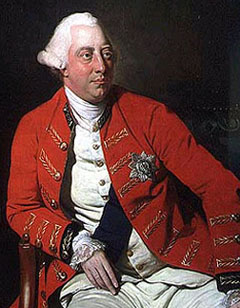Dead King Watch: Charles I

I don't know - you wait ages for a monarch to die and then three die at once. You might not know it, but you will have to believe me when I say that this blog does on occasion write about things other than dead English Kings.
But Charles I, who was executed 357 years ago today, is a bit special. I will write more about his execution, and why it constitutes one of the most glorious moments in English history when I have more time on this post, but for now lets just savour this anniversary.
Edited to add the following background from Christopher Hill's The English Revolution:
'The issue was one of political power. The bourgeoisie had rejected Charles I’s Government, not because he was a bad man, but because he represented an obsolete social system. His Government tried to perpetuate a feudal social order when the conditions existed for free capitalist development, when the increase of national wealth could only come by means of free capitalist development. A seventeenth century parson thus described the line-up: – “Against the king, the laws and religion, were a company of poor tradesmen, broken and decayed citizens, deluded and priest-ridden women. . . . the rude rabble that knew not wherefore they were got together, ... tailors, shoemakers, linkboys, etc.; ... on the king’s side ... all the bishops of the land, all the deans, prebends and learned men; both the universities; all the princes, dukes, marquises; all the earls and lords except two or three; ... all the knights and gentlemen in the three nations, except a score of sectaries and atheists.” We need not take that partisan account too literally but it makes the class nature of the division clear.
Charles’s policy throughout his reign, illustrates the class basis of his rule. He tried to regulate trade and industry with the contradictory intention both of slowing down a too rapid capitalist development and of sharing in its profits. In foreign policy he wished for the alliance of the most reactionary powers, Spain and Austria, and refused therefore the forward national policy demanded by the bourgeoisie. Because he lost all favour with the moneyed classes, he had to levy illegal taxes, to aim to dispense with Parliament, to rule by force. His failure in Scotland showed up the rottenness of the whole structure which he had reared; and his appeals for national unity against the foreign enemy fell on deaf ears. The real enemy was at home. The invading Scottish army was hailed as an ally. The Parliamentarian attack showed that the opposition had realised that they were fighting more than a few evil counsellors (as they had long believed or pretended to believe), more even than the King himself. They were fighting a system. Before the social order they needed could secure they had to smash the old bureaucratic machinery, defeat the cavaliers in battle. The heads of a king and many peers had to roll in the dust before it could be certain that future kings and the peerage would recognise the dominance of the new class.
...Many of those who fought for Parliament were afterwards disappointed with the achievements of the revolution, felt they had been betrayed. But they were right to fight. A victory for Charles I and his gang could only have meant the economic stagnation of England, the stabilisation of a backward feudal society in a commercial age, and yet necessitated an even bloodier struggle for liberation later. The Parliamentarians thought they were fighting God’s battles. They were certainly fighting those of posterity, throwing off an intolerable incubus to further advance. The fact that the revolution might have gone further should never allow us to forget the heroism and faith and disciplined energy with which ordinary decent people responded when the Parliament’s leaders freely and frankly appealed to them to support its cause.
...After the Army’s victory in this second civil war, Grandees and Levellers united to clear the compromisers out of Parliament (Pride’s Purge) and to bring the King to justice. After a speedy trial, he was executed on January 30th, 1649, as a “public enemy to the good people of this nation.” Monarchy was declared to be “unnecessary, burdensome, and dangerous to the liberty, safety and public interest of the people,” and was abolished. The House of Lords, which was also abolished, was merely “useless and dangerous.” On May 19th, 1649, a republic was proclaimed.'
Labels: Dead King














